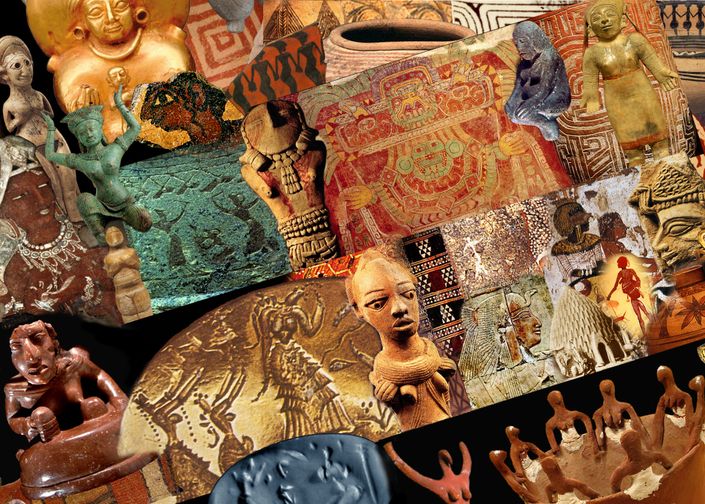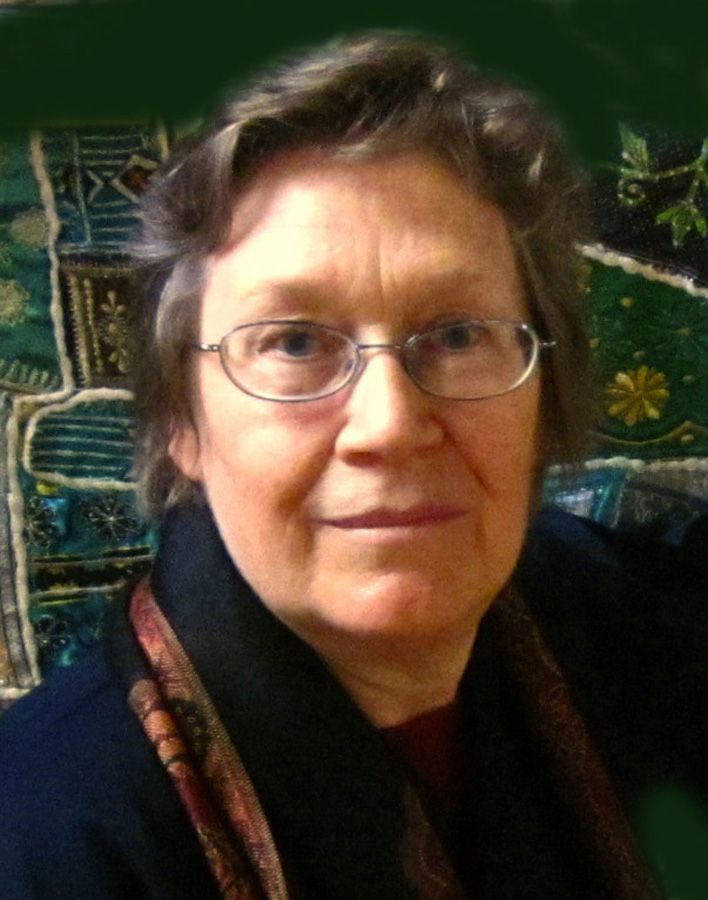
Rematria / Dismantling Patriarchy
2024 course
The 2024 course is now archived as an evergreen, non-interactive course. It offers a series of photo essays, book excerpts, links to articles, images and videos that come up in my ongoing research. The visual webcasts are no longer included.
Course Curriculum
-
StartSearching for withheld knowledge
-
StartMatrilineal/matrilocal cultures: overview
-
StartMatricultures VIDEO 1: Introduction (8:05)
-
StartMatricultures VIDEO 2: Africa (18:54)
-
StartMatricultures VIDEO 3: SE Asia, Indonesia, Pacific (18:08)
-
StartMatricultures VIDEO 4: India, North America (24:23)
-
StartMatrilineage, matrilocality, constellation of factors
-
StartTracking Down Matricultures: where to look?
-
StartFemale Founders, Culture-Makers, First Women
-
StartLonghouse Matrilines of Vietnam
-
PreviewThe Matrilineal Country of Laos; the Matriarchal Co-Ho
-
StartEastern Indonesia (20:06)
-
StartThe Bonobo Sisterhood
-
StartThe Goba / Tonga of the Zambezi River, Zimbabwe
-
StartThe Bemba people of Zambia
-
StartBissago Islanders off Guinée-Bissau
-
StartLarge egalitarian towns of the Tripilliye culture, Ukraine
-
StartIndigenous Names for Matriarchy
-
StartBaYaka and Agta foragers are gender egalitarian
-
StartMother Law of the Haudenosaunee (Iroquois Nations)
-
StartThe Etruscans
-
StartThe Kushans (ancient Sudan)
-
StartStories of Women's Overthrow
-
StartFemale Chieftains and Founding Queens in Zambia
-
StartPatriarchal socialization in Nkoya womanhood ceremonies
-
StartChewa Girls' Initiation: socializing into wifehood
-
StartPedagogies of Subservience? Imbusa among the Bemba [Women's Initiations]
-
StartThe effects of slave-raiding on Zambia and Malawi
-
StartPatriarchalization in North America
-
StartChampa, matrilineal people of Vietnam
-
StartIslamization in patriarchalizing Minangkabau
-
StartShift to Patrilineage in Korea
-
StartAncient Sahara: women in rock art
-
StartMatrllineage in in medieval Christian Nubia (yes really) and queens
-
StartWomen's Tatau tradition in Samoa
-
StartIndigenous Taiwan Critical of Chinese Patriarchy
Get started now!
Your Instructor

Max Dashu founded the Suppressed Histories Archives in 1970 to research and document global women's history, reflecting the full spectrum of the world's peoples. She uses images to teach, scanning the cultural record: archaeology, history, art, orature, linguistics and spiritual philosophies. From her collection of some 50,000 images, she has created 130 visual talks on female cultural heritages, foregrouding Indigenous traditions, with attention to patterns of conquest and domination. She is internationally known for her expertise on ancient female iconography, matricultures and patriarchal systems, medicine women and shamans, witch hunts, and female spheres of power.
Dashu's legendary visual talks bring to light female realities usually hidden from view, from ancient female figurines to women leaders, priestesses, clan mothers, philosophers, warriors and rebels. Her courses scan the cultural record—archaeology, history, art, orature, linguistics, and spiritual philosophies—making this knowledge more accessible to all education backgrounds.
Dashu has been presenting her visual talks for more than four decades, at universities, conferences, museums, community centers, bookstores, galleries, libraries and schools, in North America, Italy, Belgium, Germany, Ireland, Britain, Switzerland, the Netherlands, Bulgaria, Austria, Australia, Mexico and Guatemala.
Max Dashu's book Witches and Pagans: Women in European Folk Religion, 700-1000 (Veleda Press, 2016) has been acclaimed as a sourcebook on European ancestral traditions. Her forthcoming book on women in Hellenic myth and history is Vol II in her 16-volume series Secret History of the Witches.
Dashu has published in various journals and anthologies, including Goddesses in World Mythology (Praeger 2010) and the Encyclopedia of Women in World Religion (ABC-Clio 2018). She created two videos: Women's Power in Global Perspective (2008) and Woman Shaman: The Ancients (2013). Her daily posts on the Suppressed Histories Facebook page are followed by 181,000 people, and 72,000 more have viewed her articles on Academia.edu.
